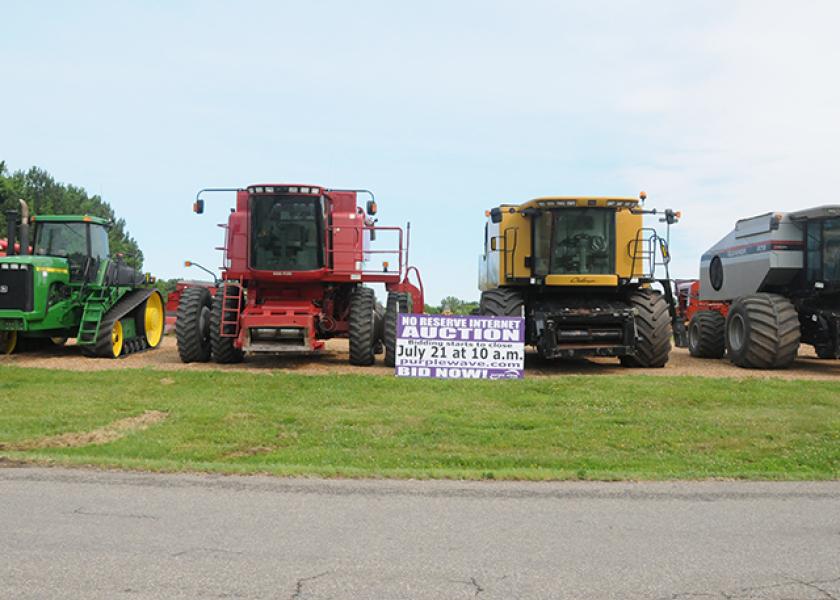Buying Farm Equipment? Here’s How to Take Advantage of Tax Savings

If you’re planning to buy farm equipment before the end of the year, here’s a refresher on two tax tools you can use.
Section 179
The Section 179 deduction limit for 2022 was raised to $1,080,000 with an equipment spending cap phasing out beginning at $2,700,000. It can be used for new and used equipment.
“So with the Section 179 deduction, if you spend less than $1.08 million this year, you can write off the equipment in full and reduce your income, says Paul Neiffer, CPA and principal with CLA.
Bonus depreciation
The concept of depreciation is pretty simple, Neiffer says: “You purchase an asset and then deduct part of that cost each year until it is fully written off.”
Bonus depreciation provides a 100% additional first-year depreciation deduction for “qualified property” through 2022. Eligible property includes all farm assets, other than land.
For example, if you buy a new piece of equipment for $300,000, you can depreciate the entire amount in this year. Or you can elect out of bonus depreciation, Neiffer says, and depreciate the asset out over its useful life. For example, a new combine can be depreciated out over five years. Used farm equipment is depreciated over seven years.
“If you pay in cash for equipment, deducting all of the depreciation up front is fine,” Neiffer says. “But if you are financing 100% of the purchase, you might want to elect out of the full depreciation and match up the yearly depreciation amounts with your loan payments.”
Currently, first-year bonus depreciation at 100% will remain in effect until January 1, 2023. After that, the following phase-down will occur:
- 80% for property placed in service after Dec. 31, 2022, and before Jan. 1, 2024.
- 60% for property placed in service after Dec. 31, 2023, and before Jan. 1, 2025.
- 40% for property placed in service after Dec. 31, 2024, and before Jan. 1, 2026.
- 20% for property placed in service after Dec. 31, 2025, and before Jan. 1, 2027.
With the current supply chain challenges, Neiffer says you cannot use bonus depreciation or Section 179 unless you have the new asset on your farm — it can’t just be ordered.
As with any large investment decision, Neiffer recommends you visit with a CPA about your goal before making a purchase.
Read More







